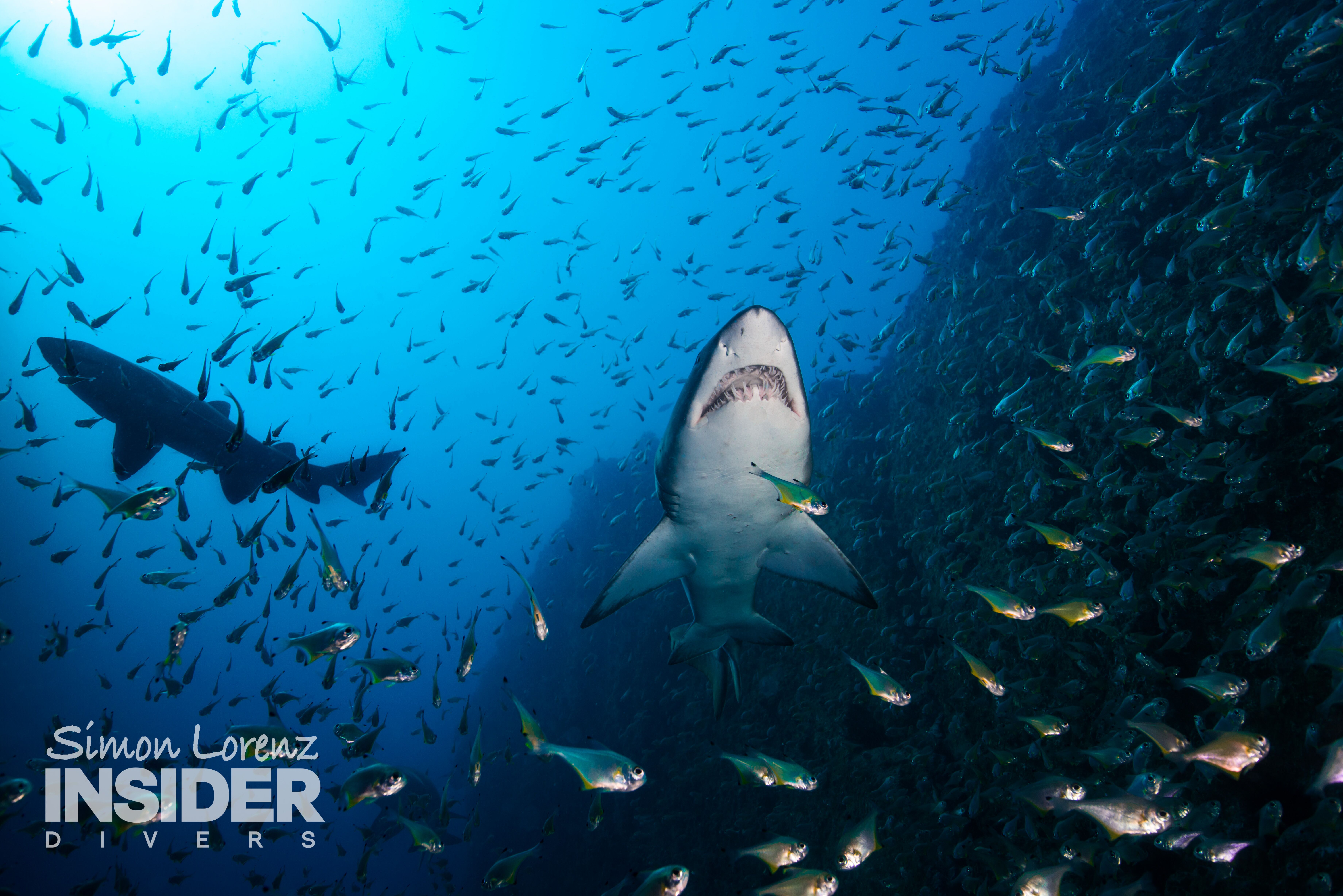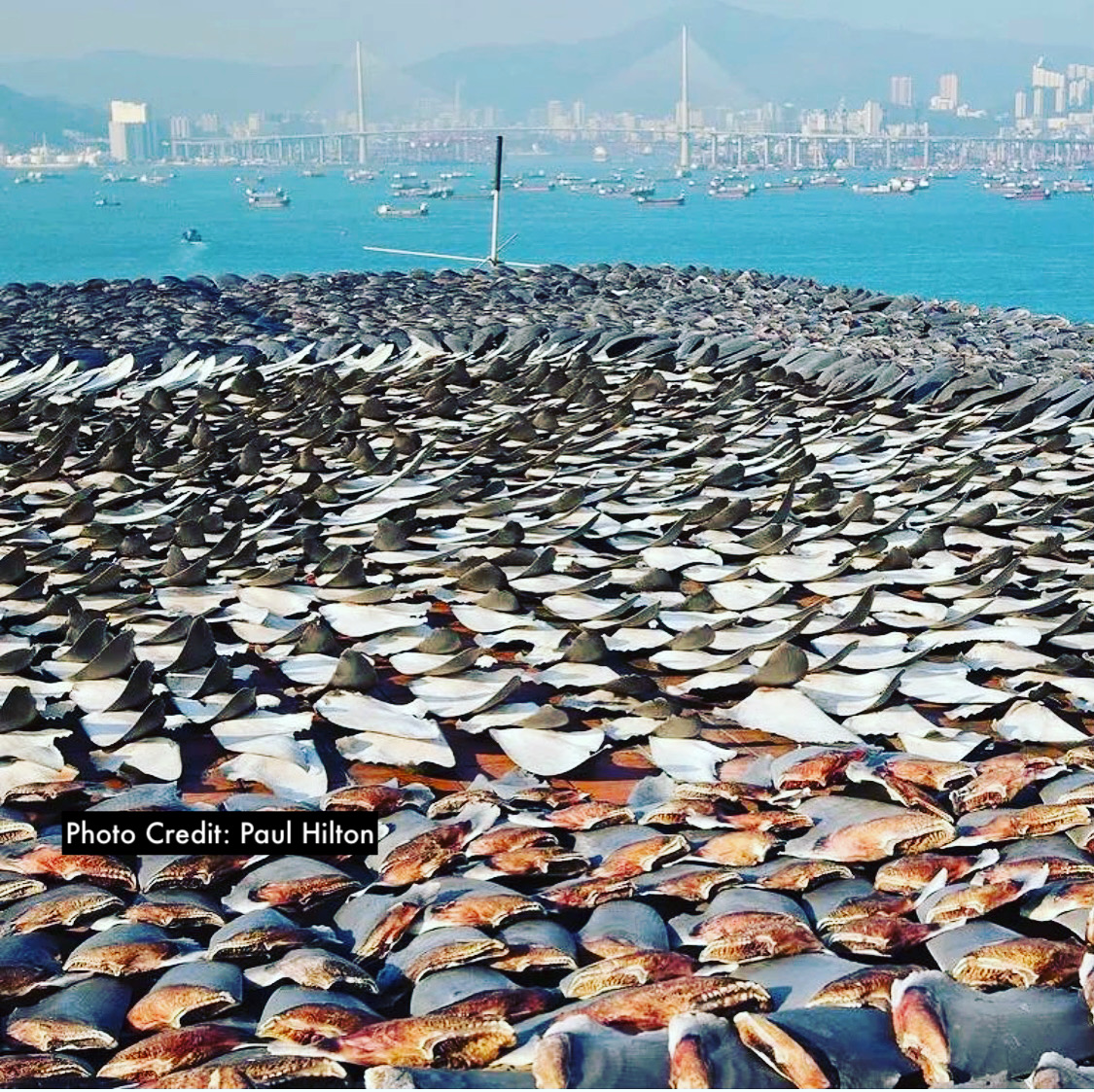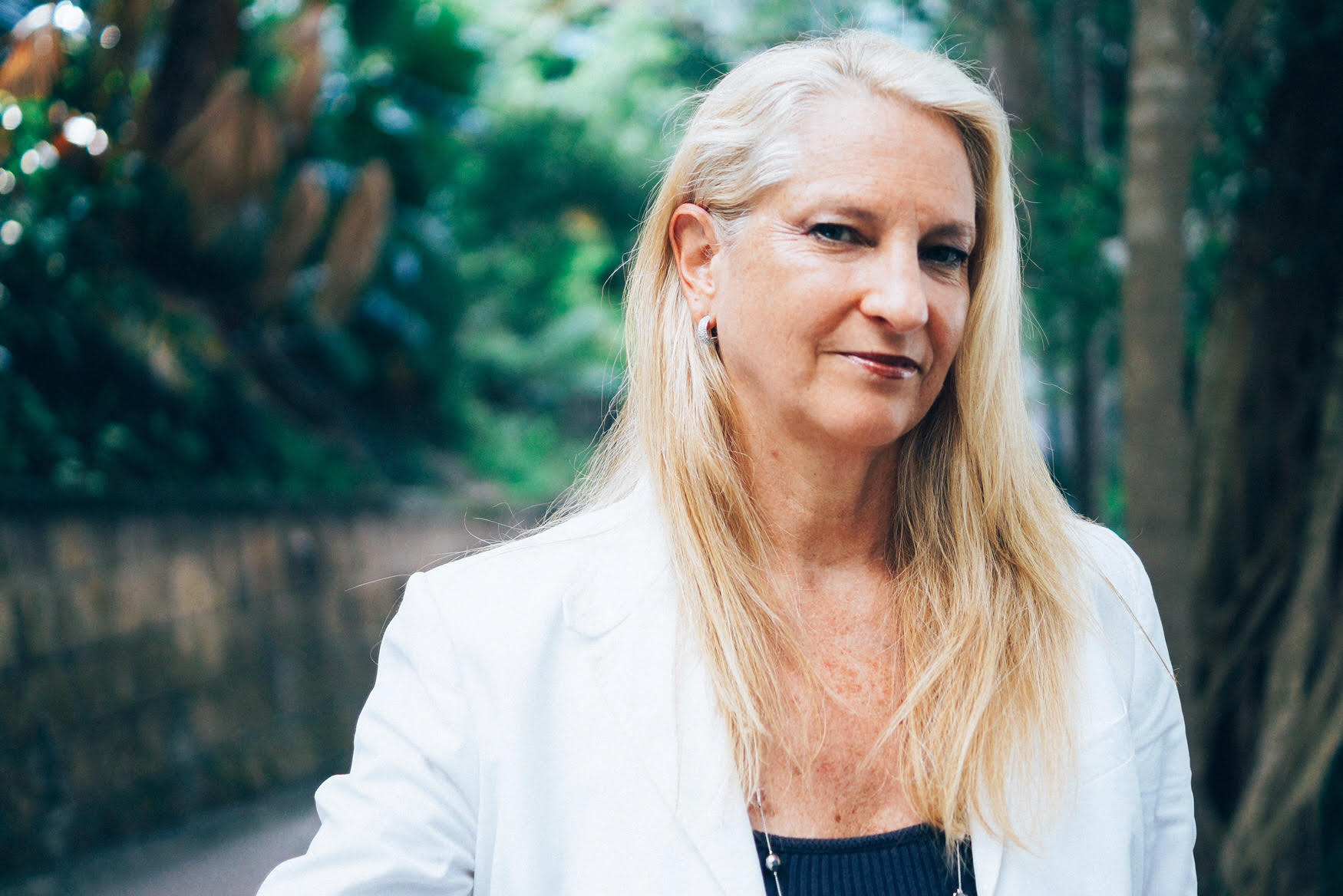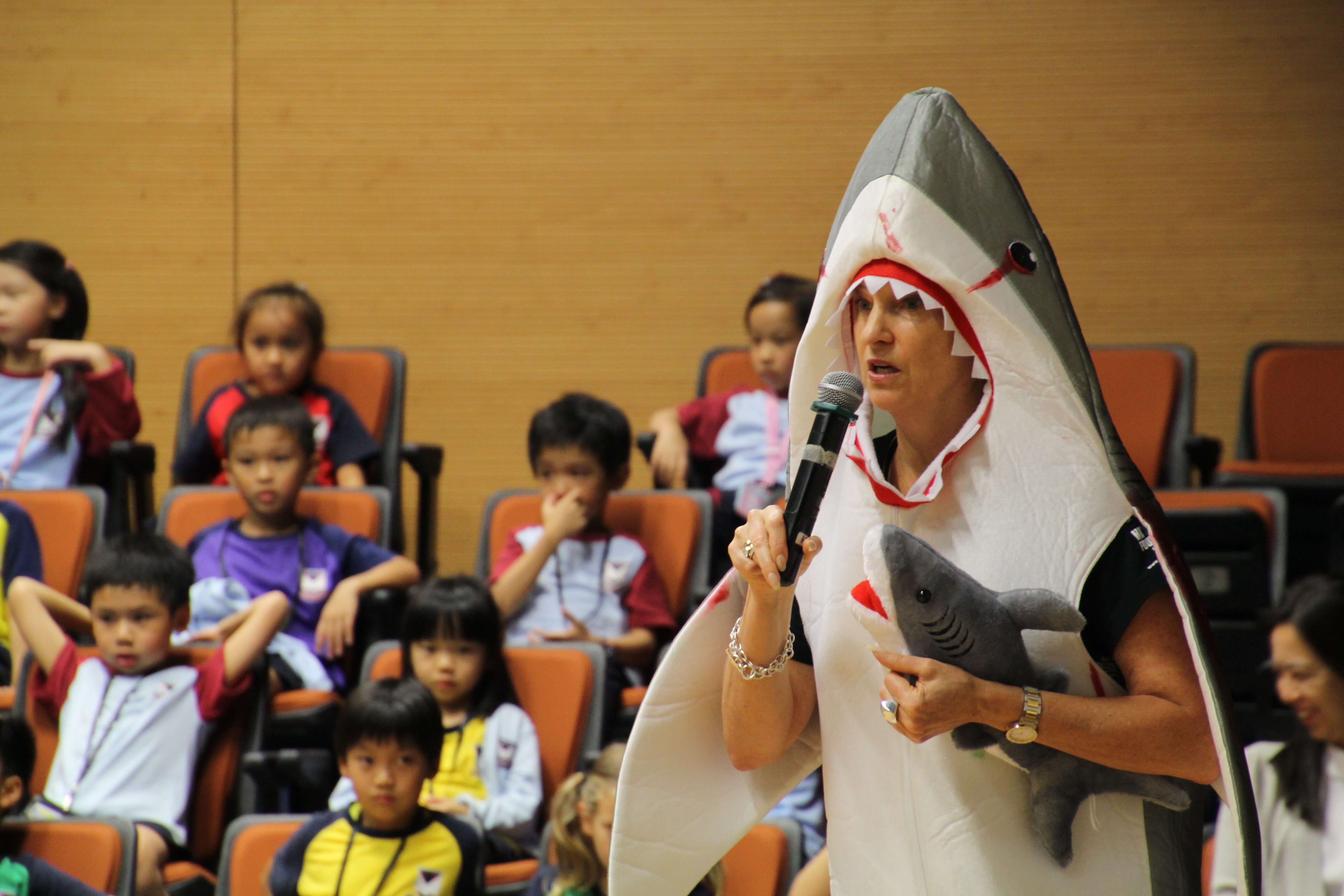Just say “no” to shark fin soup, says Hong Kong Shark Foundation

A few minutes every morning is all you need.
Stay up to date on the world's Headlines and Human Stories. It's fun, it's factual, it's fluff-free.
Many experts previously estimated that around 100 million sharks are killed annually. That number in itself devastating, but it’s quite possibly on the conservative end, with some estimates suggesting the total kills reach up to around 270 million every year.
The act of shark finning has played a significant role in this carnage. Most popularly associated with shark fin soup, a traditional Chinese delicacy, shark finning involves cutting the fins off of live sharks and leaving the bodies to drown in the ocean. The unsustainable nature of the act leaves the shark population dwindling, despite measures being taken to revive it.
But, it’s not just shark finning that’s contributing to the issue. The Food and Agriculture Organization of the United Nations explains that “A combination of demand growth and antifinning regulations intended to encourage the full utilization of carcasses has seen the market for shark meat expand considerably.”
In addition to sharks being hunted for food in greater numbers, the demand for shark by-products like cartilage and oil, which are often used in everyday products, adds to the overfishing and endangerment of many shark species.
“In turn, this has led to fishers seeing sharks increasingly as commercial species to be actively targeted, rather than bycatch species landed unintentionally while targeting more valuable species such as tuna or swordfish,” writes the UN.
Hong Kong is also recognized as one of the world’s key trading hubs of shark fin, responsible for trading around 50% of the world’s supply. This is just the tip of the iceberg, though, as the issue continues to raise headlights on the overall deteriorating marine ecosystem.
With that, TMS spoke exclusively with the Andrea Richey, the executive director of Hong Kong Shark Foundation – an organization that actively speaks up for the sharks – to gather her thoughts on the current shark situation and learn what we, as individuals and a society, can do to save sharks.
The issue of sharks

Sharks are essential to the balance of our marine environment and enable biodiversity. “They maintain the food webs,” explains Richey. “They manage the climate as big carbon sinkholes, but I think the most important is the top one – that they’re opportunists, and that they cull the sick and the slow, and they eliminate disease.
“They’re like the cleaners of the ocean, and they maintain healthy marine ecosystems. And without them, there is a collapse.”
Thus, the need to speak up for the voiceless sharks is urgent, especially when the shark population continues to decline. Richey points out many flaws in the consumption of sharks – both environmentally and culturally.
Shark fins and byproducts continue to be in high demand, despite disputed claims of their alleged health benefits. The increase in the number of sharks killed annually has also been influenced by the discovery of new ways to use shark other than for its fin. Shark meat has grown in popularity and has been passed off as fish – sold under the name “flake,” as it’s a cheap alternative to expensive and overfished species of fish like cod.
Shark meat is often sold under misleading names like flake, sokomoro, rock salmon, steak fish and others, so you may be eating shark meat without even realizing it. Even something known as squalene, which is often sourced from shark liver oil, is frequently used in cosmetics and beauty products and claims to provide anti-fatigue and anti-ageing benefits. But, it’s not exactly upfront about being a shark byproduct, and the health benefits, if any, are still debated among experts.
“The pet food industry is huge for the scraps of all fish, including sharks. [There] are some dog treats found in Hong Kong – shark cartilage, and they’re just selling it as a treat,” adds Richey.
Furthermore, rather than the purported health benefits, studies have found that shark fins often contain high levels of harmful toxins, like lead, mercury and arsenic, which pass through the food chain.

The consumption of shark fin is widely attributed to Chinese culture. In fact, the cultural and heritage factors have always been a key defense for those who choose to consume sharks. Richey explains that it all started through the words of poet Mei Yao Chen.
“He was a poet like 1000 years ago, and he wrote a poem about shark fin soup, and the emperor saw it. And from there, it became a status symbol. So people, when they had weddings or big parties, they wanted to have what the emperor was eating, and that’s what we call ‘conspicuous consumption,” explains Richey.
However, Richey states that many countries other than China contribute significantly to shark consumption. She explains that countries like Italy, South Korea and Indonesia come before China in shark consumption, most likely due to conspicuous consumption – the “status” associated with shark fin soup is deemed attractive and raises demand.

“So, non-ethnically Chinese countries seem to be really grasping and embracing this conspicuous consumption phenomenon,” says Richey, “where they want to get face, their daughters are getting married, and they want to have a big wedding in Thailand.”
“Like when you go to Yum Cha, right? You take your Gucci wallet or your Louis Vuitton purse and you wear your best, you know, Manolo Blahniks,” says Richey.
But, it’s not just shark fin soup that’s driving the market. Some countries that don’t even have shark on the menu still participate in its trade – and it all comes down to money. “So we’re constantly educating people that this is a global shark crisis. This is not [just] a Chinese thing, right?” Richey points out.
To make things even more dire, sharks are slow reproducers. Some species of sharks aren’t sexually mature until their 20s, and others can be pregnant for years at a time. In the shark fishing industry, many young sharks are slaughtered, as the gill nets are indiscriminate about their prey.
“If we’re killing, you know, 100 million or 270 million, we just can’t continue on this way … if we’re killing sharks when they’re younger, then we’re wiping out that ability for them to reproduce,” says Richey.
“So, really, the only solution is to just stop – stop catching sharks, right? Make all sharks illegal because we need them in the ocean. But we also need to stop the overfishing.”
Motivation and mission

Before joining in the fight for shark conservation, Richey was an ex-lawyer in Hong Kong recruiting other lawyers for new jobs. “I thought, well, you know, there’s gotta be more to life than this,” Richey recalls. The prospect of giving back to the community through volunteering drove her to find a new type of happiness. Quoting Dr. Sylvia Eaerle, Richey states, “No one can do everything but everyone can do something.”
Volunteering at various charities, including charities for cats and dogs, educating children about wildlife and Philippine immigrants and human rights, Richey began her journey. But she found her calling at HKSF, where she discovered two common misconceptions – that nobody really eats shark fin anymore, and that there are plenty of sharks in the sea.
“But I realized,” she says, “that really the sharks were so important to us that most people didn’t realize, and that there was just very little voice for the sharks, at least in Hong Kong.”
HKSF has three important campaigns at the heart of its advocacy work – Shark-Free Weddings, Shark-Free Company (together with companies like Cathay Pacific and Maximal Concepts) and the Shark Ambassador Education Programme – which actively raise awareness and put abstaining from shark consumption into practice.
The Shark Ambassador Education Programme, in particular, is one of the HKSF’s most significant operations. Richey went from teaching around 2300 kids in 2016 to teaching about 11,000 kids in 2019. However, the COVID-19 situation inevitably took a toll on the number of students HKSF was able to reach.

“Schools are very important in the success of our education program because I consider myself to be a farmer. You know, I’m planting the seeds of change. So it’s been really difficult to get an audience, to get in front of teachers. It’s a challenge,” she says.
But, as a farmer for the seeds of change, Richey places great emphasis on educating young audiences about sharks and their conservation. HKSF is adapting to the current pandemic by moving online and seeking out larger audiences for its message.
“Planting those seeds of change in the kids is our only hope for the future,” says Richey. “At least my opinion is, when it comes to things like climate change, and the planet and species, like endangered species like sharks, pangolins, tigers, elephants, right? Those are our next generation. Why would you not fertilize and nurture our future decision-makers on that?”
What can we do to help?
The most obvious answer is, just to say “no” to shark fin, meat and products. Actively look out for products that may contain shark byproducts, and vote with your wallet. Also, it is helpful to advocate to the people around you and encourage them to spread awareness within their own social circles about the importance of shark conservation.
And, signing pledges and petitions against shark finning and consumption does help, even if it sometimes seems insignificant. Pledges and petitions have proven to be successful in past cases. For example, HKSF asked Maxim’s, after raising a petition, to stop selling shark fin soup in 2016, and they have. Foodpanda has also signed a pledge with WWF to remove any shark fin-related dishes from its menus.
You can also contribute through online fundraising platforms that HKSF has partnered with – including TwoPresents, SimplyGiving and give.asia – and you can always proactively aid its operations through intern and volunteer opportunities offered through the organization.




Comments ()